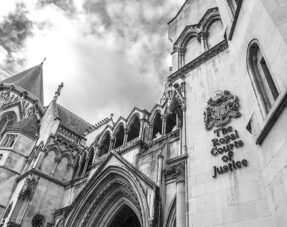Buying or selling a new house or flat is a costly and often exciting process. It is usually the largest financial commitment you will make, so it’s important to make sure you do everything correctly and protect your investment appropriately. We can help make it an efficient process too, for a fair price with minimum stress.
residential property solicitors.
Our team of experienced residential property solicitors have considerable local knowledge, making the conveyancing process swifter and stress-free. Accredited with the Conveyancing Quality Mark, you can trust our team of residential property solicitors are the right people to trust your home with.
lease extension solicitors.
Extending the lease on your flat or buying the freehold can feel like a daunting process. Our experienced lease extension solicitors can help you with their proven approach to the process. Our clear pricing guidelines mean you have all the information necessary to budget appropriately.
other residential property transactions.
Our friendly team can help you with more than buying and selling a property. We act for landlords and tenants and can represent clients before the First Tier Property Tribunal. We can also support you with:
- Collective enfranchisement – buying the freehold of the building in which you have a flat
- Right to manage / RTM – taking over the management of common areas from your landlord or managing agent
- Section 5 notices – giving qualifying tenants the right of first refusal when the landlord is selling the freehold of the property in which they have a flat
- Section 20 notices/notices of major works – representing you where major works are in issue, and helping you in Tribunal proceedings
Our clear pricing guidelines give you all the information necessary to budget appropriately for additional peace of mind.
how we can help you
Buying or selling a property can seem like a complicated and lengthy process. But it’s easiest to look at it in three sections – pre-exchange, exchange and completion.
pre-exchange.
Pre-exchange is a thorough investigation of the property you are buying. This investigation means you know exactly what you are buying and also makes sure the seller is legally able to sell the property. Your solicitor carries out this investigation; called the “pre-contract investigation”.
The pre-contract investigation involves:
- an investigation of the legal title – confirmation that the seller can legally sell the property, and investigation into any rules and obligations imposed on the land (known as ‘covenants’), as well as any rights that benefit the property.
- property, fittings and contents information from the seller. This is provided by filling in a property information form and fittings and contents schedules. The information includes:
- details of items included in the sale price
- details of works carried out the property with the knowledge of the seller
- details of how the boundaries are maintained
- details of any neighbour disputes
- enquiries of the local authority and various utility companies, known as searches
- a topline report on any mortgage offer.
Once this investigation has been completed, you will be in a more informed position and can decide whether or not you still want to purchase the property. If you do still wish to purchase, you sign the contract and pay the deposit. After this point you are legally obliged to buy or sell the property in question.
exchange.
Exchange is the point at which the contract between buyer and seller becomes legally binding. You and the other party sign the contract drafted by the solicitors, the buyer pays the deposit and a both parties agree a mutually acceptable completion date.
The deposit is traditionally 10% of the purchase price although a 5% deposit may be accepted by the seller.
completion.
Completion is the date at which all parties move house. Completion usually happens between 12.30pm and 2pm, depending on the banks. The buyer’s solicitor pays the stamp duty and then deals with the change of ownership procedures.
Rarely, completion does not take place or is delayed. In this situation the following may apply:
- If you fail to complete on time, the seller is entitled to charge interest until actual completion or upon notice to you, may be entitled to terminate the contract
- If the seller does terminate the contract, he or she is entitled to keep the deposit. If you have only paid a 5% deposit you will be obliged provide the rest of the deposit up to 10%.
- The seller can also claim compensation for other losses such as re-selling at a lower price.
If you would like to know more or would like further help, call our experienced property solicitors for free, no obligation advice
How long does the conveyancing process take?
The time between an offer being accepted and moving day depends on several factors. The average process takes between 10 to 12 weeks to exchange contracts, and a further 2 weeks before completion. This depends on all parties involved agreeing to the proposed completion date.
Several factors can slow this process down. For example, a purchase of a new build property or property sold through probate could take several months to complete. Selling or buying a leasehold property that requires a lease extension can add further time to the conveyancing process.
The deposit is a part-payment of the purchase price and is paid on exchange of contracts. It is a forfeitable bond – if you don’t complete (move) on the agreed date, you can lose your deposit.
The deposit is traditionally 10% of the purchase price although a 5% deposit may be accepted. If you pay a 5% deposit and then default on the purchase, you must pay the remaining 5% of the deposit immediately. If you are buying and selling you must fund the difference between the 5% deposit you receive and the 5% deposit payable on your new property.
We always and strongly recommend you request a full structural property survey before buying a property – surveys highlight potential issues with the property you are considering and mean you are fully informed about your potential investment. It is also important to note that the seller is not obliged to answer any questions relating to the physical aspects of the property. The survey results may highlight defects with the property you wish to buy. In this case, you can choose not to purchase the property or to renegotiate the price to account for the cost of repairing these defects. Any renegotiation must be disclosed to your mortgage lender; we are duty bound to do this as we act for the mortgage lender as well.
There are three levels of survey.
- Valuation survey
Your mortgage provider will instruct a valuation survey on the lender’s behalf. This deals only with the value and price of the property, not the structure. This valuation is for the benefit of the lender which is why we strongly advise you to obtain a full structural survey.
- Home buyer survey
A home buyer survey provides basic information about the structural integrity of the property as well as information about value and price. These tend to be less detailed than a full structural survey and so will be slightly cheaper.
- Full structural surveys
These are comprehensive and generally recommended if you are buying an older property. Due to their thorough nature, they are more expensive. You should discuss the most suitable type of survey with your surveyor. No matter what survey you choose, you should tell your surveyor about any concerns you have before the survey.
A survey does not investigate the boiler and electrics; you will need to ask the seller for information about these utilities or request a service. We recommend you request a professional check of the boiler and electrics before exchanging contracts.
energy performance certificates (EPCs).
EPCs tell potential buyers about the energy performance of a building. The buyers can then decide whether to improve that performance and how to go about it. There are usually recommendations on how to this in the certificate. We do not give advice on these certificates.
Before buying or selling a property, you need to know what costs are involved and when they should be paid.
The total cost of purchase is the purchase price plus Stamp Duty plus Land Registry fees plus professional costs and disbursements. We will tell you these costs at the start of your sale or purchase so you can plan your budget. You can use our quote generator to get an idea of what these costs may be.
A property purchase is normally funded through a combination of bank loans (mortgage) and cash reserves. If you are receiving a gift of money to partially fund your purchase, we must disclose this to your mortgage lender.
There are typically three points at which we pay money on your behalf during the purchase of property:
- a small payment on account at the start of the process, normally £400. This funds searches and other initial costs.
- the deposit immediately before exchange of contracts
- the balance of funds (less any mortgage) immediately before completion (the move date).
the mortgage.
You must arrange the mortgage and discuss any concerns with your financial adviser. Most solicitors are not permitted to give financial advice.
Your lender will require a valuation of the property. The fee for this is usually paid to the financial adviser or mortgage lender directly.
third party deposits/loans and gifts.
If you are receiving money from a third party, you must decide whether it is a gift or a loan. This should then be reflected in an appropriate document. We can help you draft such a document.
If you are getting a mortgage, you must disclose this information to the mortgage company. We cannot receive payments direct from third parties.
Flats with less than 80 years may be difficult to sell or to secure a mortgage on. Extending your lease overcomes this problem and makes your property more desirable, and in most cases, a more valuable asset.
how should I extend the lease on my property?
voluntary extension.
If you have agreed a lease extension and a price to pay for the lease extension with the freeholder, the process is relatively straightforward. We can help you negotiate the terms of the extended lease and complete the necessary documents.
statutory extension – extension under the relevant legislation.
You must prepare and sign a document called a Notice which sets out basic details about the flat and includes the price you would like to pay for the extension of the lease. It is recommended you instruct a solicitor to prepare the initial Notice. There are stringent legal requirements regarding its content and timeframe for service.
The freeholder then has the right to respond by preparing a document called a Counter Notice. Negotiations can then take place; if an agreement is not reached, then a decision will be made by a tribunal.
what will it cost and what is the financial benefit?
The cost you pay to the freeholder depends on a number of factors including the market value of the flat and the number of years left on your lease. The less time remaining on the lease, the more you will have to pay.
There are also other charges payable to the freeholder including surveyors’ and solicitors’ fees. The freeholder may also claim a deposit following the service of the Notice, typically 10% of the price or £250.
If you instruct a solicitor you will also need to pay your solicitors’ fees. Our fees are clearly set out in our fee guide.
The ground rent under a statutory lease extension will be reduced to a ‘peppercorn’. i.e. zero or a minimal amount.
how can we help?
Our experienced team can guide you through the lease extension process. With experience in property transactions and property disputes, we can give you a rounded service for the best possible result.
Flats with less than 80 years may be difficult to sell or to secure a mortgage on. Extending your lease either by agreement, or otherwise, overcomes this problem and makes your property more desirable and in most cases a more valuable asset.
how would you go about it?
voluntary extension.
If you have agreed a lease extension with the freeholder then the process is straightforward. We can assist you with negotiating the terms of the extended lease and completing the necessary documents.
statutory extension – extension under the relevant legislation.
You will need a document called a Notice to be prepared and signed, which sets out basic details about the flat, and includes the premium (price) that you would like to pay for the extension. It is recommended that you instruct a solicitor to prepare the initial Notice.
The freeholder then has the right to respond by preparing a document called a Counter Notice. Negotiations can then take place, but if no agreement is reached, ultimately, a decision will be made by a tribunal (which is a type of court).
what will it cost and what is the financial benefit?
The cost you pay to the freeholder will depend on a number of factors including the market value of the flat and the number of years left on your lease. The less time you have remaining the more you will have to pay.
There are also other charges that will be payable to the freeholder including surveyors’ and solicitors’ fees. The freeholder may also claim a deposit following the service of the Notice which could be 10% of the premium or £250.
If you instruct a solicitor, you will need to know what fees are likely to be charged. We have experience in these matters and to help you budget, we have set out our fees below.
how can we help?
We have the experience and expertise required to deal with what can be a complex process needing expertise in dealing with property transactions and property disputes. We can offer you both of these, ensuring you the best possible result.
fee guide for statutory lease extensions.
The cost of extending a lease will depend on your Freeholder’s response. Please see our fee guide below, to help you budget.
We have divided our fees to reflect the three incremental stages of the process. If the Freeholder is determined to resist the extension, all three stages may be required. If the Freeholder is content for the lease to be extended, only stage one will be required.
stage one – straightforward / undisputed.
- Checking eligibility for a lease extension and identifying the competent landlord (the legal freeholder);
- Liaising, if necessary, with your instructed valuer to determine the premium for the lease extension;
- Drafting and serving the Notice;
- Establishing title (ownership);
- Making payment of deposit on account of the premium (provided we are in funds);
- Receipt of the Counter-Notice.
Fee guide: £600 ex VAT / £720 including VAT at 20% and any charges / disbursements incurred to others.
stage two – some negotiation required and preparing for tribunal.
- Considering the Counter-Notice;
- Liaising with your surveyor regarding negotiations on the premium;
- If, despite negotiations, you and the freeholder cannot reach an agreement on all terms of the lease extension, this stage will include the costs of applying to the tribunal.
Fee guide: £600 ex VAT / £720 including VAT at 20%.
stage three – tribunal.
- Dealing with the directions made by the tribunal including preparation of bundles, briefing a barrister and liaising with the expert.
Fee guide: £600 ex VAT / £720 including VAT at 20% and any charges or disbursements incurred to others for example, a barrister’s fee. Please note, these charges and disbursements may be subject to VAT at 20%.
buy the freehold of your property – statutory.
why might you want to own the freehold?
- Selling or securing a mortgage on your property can become difficult as the length of your lease reduces. Owning the freehold lets you extend the term of your lease to up to 999 years. This makes your property more valuable and easier to sell in the future.
- Owning the freehold gives you greater control of the management of the building. This is particularly useful if you are having problems with the freeholder over how your block is run.
how do I buy the freehold on my property?
To buy the freehold, you and at least 50% of the flat owners in your block must agree to the purchase. If this is not possible but you still need to extend your lease, you may be able to secure an individual lease extension.
Participating leaseholders should sign a Participation Agreement. This binds all leaseholders to continue the process.
The formal process begins with the participating leaseholders signing a formal document called an Initial Notice. This sets out the basic details of the participants and the price they would like to pay.
The freeholder then has the right to respond by preparing a document called a Counter Notice.
Negotiations then take place around the terms of purchase. If an agreement is not reached, a decision will be made by a tribunal. This is a complicated process and is best handled by a solicitor.
what will it cost to buy the freehold on my property?
The cost of the freehold depends on a number of factors including the market value of the flats and the number of years left on your lease.
You will also need to cover other charges on behalf of the Freeholder including their surveyor and solicitor fees.
If you instruct a solicitor, you will also need to pay solicitors’ fees. Our fees are clearly set out below.
how can we help?
Our experienced team can guide you through this complex process. With experience in property transactions and disputes, we give you a rounded service for the best possible result.
fee guide for statutory leasehold enfranchisement.
The time and cost involved in obtaining the freehold of your property depends on how your Freeholder responds.
There are up to three stages involved in extending your lease. If the Freeholder is content to grant the freehold, only stage one will be required. If the Freeholder resists, you may need to work through all three stages.
We have given a guide price for each stage.
stage one – straightforward / undisputed.
- Checking the eligibility of the proposed participants and identifying the competent landlord (the legal freeholder)
- Drafting the Participation Agreement for signature
- Liaising with your valuer to confirm the premium to include in the Notice and/or considering the valuer’s report
- Preparation and service of the Notice
- Providing evidence of the tenant’s right to participate
- Receipt of the Counter-Notice.
Fee guide: £1,300 ex VAT / £1,560 including VAT at 20% and any charges or disbursements incurred to others. Please note, these charges and disbursements may be subject to VAT at 20%. We charge an additional fee of £25 plus VAT per participant.
stage two – some negotiation required and preparing for tribunal.
- Liaising with your valuer about acquisition term negotiations.
- If, despite negotiations, you and the freeholder cannot reach an agreement on all terms of the lease extension, this stage will include the costs of applying to the tribunal.
Fee guide: £600 ex VAT / £720 including VAT at 20%.
stage three – tribunal.
- Dealing with the First Tier Tribunal directions. This includes preparation of bundles, instructing Counsel and liaising with your valuer.
Fee guide: £600 ex VAT / £720 including VAT at 20% and any charges or disbursements incurred to others. Please note, these charges and disbursements may be subject to VAT at 20%.
Conveyancing fees will also be payable for the transfer of the freehold.
Occasionally, additional work may be necessary. In this situation we will agree an additional fee with you – either as an inclusive fee or on a price per hour basis. Our current hourly rate is £240 ex VAT / £288 including VAT at 20%.
If you are buying a property for the purpose of developing or refurbishing it, or have bought a recently refurbished property, you must make sure:
- you can do the work you want
- the seller has complied with the requisite obligations of the LA.
- There is nothing in the Title prohibiting this or imposing conditions on it.
your checklist.
This guide will help you plan your refurbishment or property development. We are not planning experts, so treat this information as a guide.
legal title.
- Do you need permission to carry out works?
- Are there restrictions on the work you wish to carry out?
- Can you access the land for the works or is access limited?
utility restrictions.
- Do utility pipes affect the property?
- Water supply:
- If there are public drains or mains near the property, you may not be able to build at all, or must obtain permission or a ‘Build Over Agreement’ from the water board.
- With the change in responsibility for private drains in 2011, pipes that were previously private may now be public. Proposed works may require consent from the utility company.
- Electricity or gas pipes may affect the ability to undertake works.
planning.
- Is planning permission required?
- Is building control required?
- Are specialist permissions required? For example, Listed Building or Conservation Consent.
warranty.
New buildings and newly converted buildings must have a warranty.
The presence of a warranty is usually a mortgage requirement. Even if you are not purchasing with a mortgage, selling the property in the future is likely to involve mortgage finance which will require a warranty.
The cost of maintaining private common areas in apartment blocks and housing developments must be recovered. With flats these charges are called ‘service charges’ and in housing developments they are called ‘rent charges’ or ‘estate fees’.
The maintenance is usually organised by a third party, such as a landlord or a management company.
For leasehold properties, the landlord or management company typically give a cost estimate at the start of the year, and residents make a payment on account. At the end of the year, the accounts are produced, and balancing credits or additional payments are made.
Service charge costs can be significant, and you need to consider this when purchasing a new property. You need to consider the history of payments and future payments. Buildings with flat roofs or lifts can produce particularly high service charges.
The term “management company” can be confusing as it is used to describe different entities in different situations. It can refer to a professional maintenance company or to a residents’ company responsible for organising maintenance charges. There can be several management companies involved in the management of a property.
In certain cases, you may need to become a member of a management company or even a director or secretary.
Your obligations as a director and the regulations for the day-to-day running of the company are set out in a legal document called the Memo Articles of Association. You should ask to see a copy of these before agreeing to become a director or a member of the company.
Buying and selling a property at auction can be an effective way of avoiding the delays and uncertainties that are often associated with the property market.
However, these benefits come with risks. A property auction is legally binding – once the hammer comes down, you are committed to your purchase. You will not be able to renegotiate the price and cannot retract your offer without a significant cost – usually the price of your deposit plus the seller’s costs. This is the case even if you discover a significant issue or can’t secure appropriate finance.
We can support you whether you want to buy a property or sell your property at auction.
Selling a property at auction
We prepare a comprehensive legal pack for your property as required by the auction company. This will include searches and we can advise you on the most appropriate searches for the property you are selling. This will make your property more attractive to potential buyers and help avoid disputes after completion. Once the hammer falls, we will continue with the sale and take it to completion for you. Throughout the transaction we will liaise with your buyer’s solicitors.
Buying a property at auction
If you are considering buying a property at auction, it is important for you to get in touch with us in plenty of time so we can thoroughly review the property’s auction pack. We would recommend instructing us at least three weeks before the auction date (earlier if you will be needing a mortgage). This gives us the opportunity to identify any issues that would mean we would advise you not to proceed with the purchase.
It is standard practice for a successful buyer to reimburse the seller for the cost of searches. We also recommend you get a survey carried out. If you will be funding your purchase with a mortgage, your lender will need to know that the property is sound – discovering problems once the hammer falls may result in your lender withdrawing their offer.
If your proposed purchase is in order and you place the winning bid, we will process the purchase for you and handle all registration and stamp duty land tax formalities for you.














